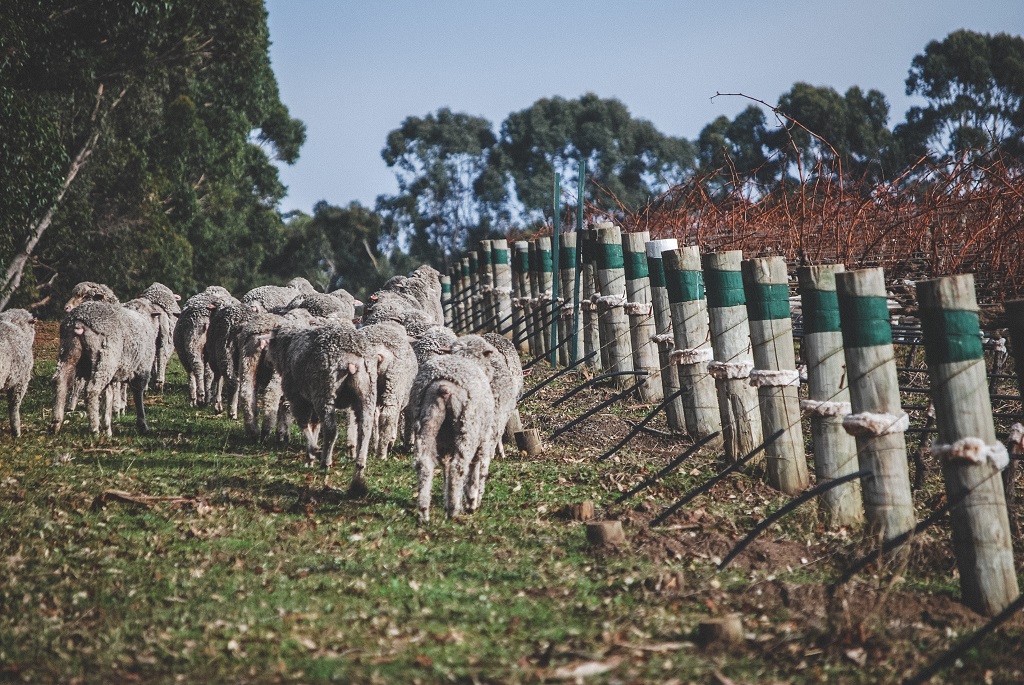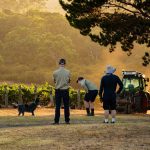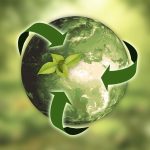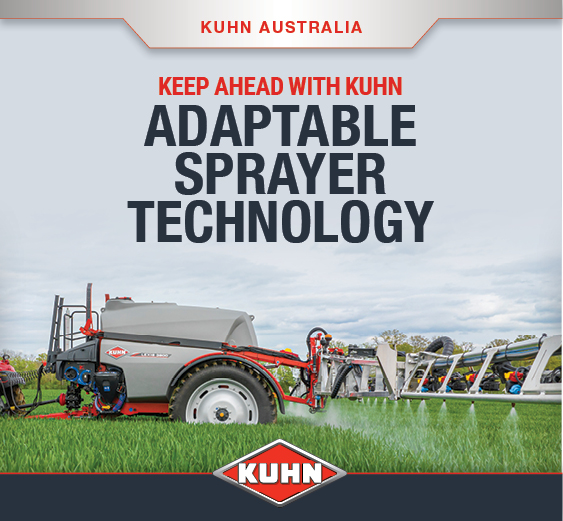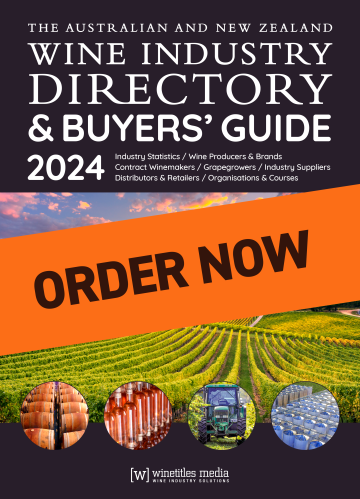Sheep grazing at a Voyager Estate vineyard. Image courtesy Voyager Estate.
Voyager Estate has released its Inaugural 2023 Sustainability Report, summarising the journey so far, celebrating key milestones, and outlining the challenges and opportunities in its path towards a carbon-neutral future.
The report provides a snapshot of the company’s current environmental and community impact, its pathway to becoming fully certified organic, and its emerging efforts in understanding its greenhouse emissions, as well as tackling the major collective challenge – climate change.
“Much like the old saying ‘the map is not the territory’, the report is not the work!” said Michelle McManus, head of sustainability at Voyager Estate.
“However, it’s critical to document the progress in our wayfinding. We’re very proud to stand alongside many other businesses in the Margaret River region and beyond, working to make our land, operations, and communities more resilient, and to play our part in creating a positive future.”

As of 2023, all Voyager Estate vineyards are certified with Australian Certified Organic (ACO) – meaning healthy soils and no synthetic inputs. This is a significant rise on the 2020 figure, which saw just 30% of the company’s vineyards achieve organic certification.
Also a milestone this year, the company now compost 100% of its grape marc and garden waste, and 50% of kitchen organics (from food preparation) onsite. Starting in 2023, the compost is now fully certified organic for use in the vineyard.

As part of the winery’s commitment to climate change action, Voyager Estate is a silver member of International Wineries for Climate Action (IWCA), a group which was founded in 2019 by Familia Torres and Jackson Family Wines.
After being accepted as an Applicant Member in 2021, Voyager’s first step was to complete a comprehensive measurement and calculation of its greenhouse gas emissions and commit to practical steps towards Net Zero (carbon neutral) emissions by 2050.
According to the report, Voyager completed that work one year later, making the estate one of two Western Australian wineries to achieve Silver Membership, alongside Cullen Wines. Its efforts in 2022 focused on confirming its biggest sources of greenhouse gas emissions (GHGs) and identifying what will be the key focus areas of its energy and emissions reductions.
A third-party audited baseline was completed for the year 2019 to avoid any impacts from the anomalies of 2020 onwards with COVID-19, and, using the 2019 data as a baseline, Voyager Estate aims to reduce its emissions by 35% in 2030 and get to Net Zero in 2050 by reducing 85 tonnes per year on average. The company intend to balance those emissions by drawing down carbon through soil or vegetation projects on its own farmland or supporting others through credible offset projects.
“I have been observing and nurturing the land at Voyager Estate for 15 years, long enough to remember our earlier days of conventional farming. The difference from then to now is, well, astoundingly good. Working with nature to enhance plant and animal life, is really rewarding. I’m so proud of all that we have achieved as a team,” said Alex Miller, technical viticulturist at Voyager Estate.
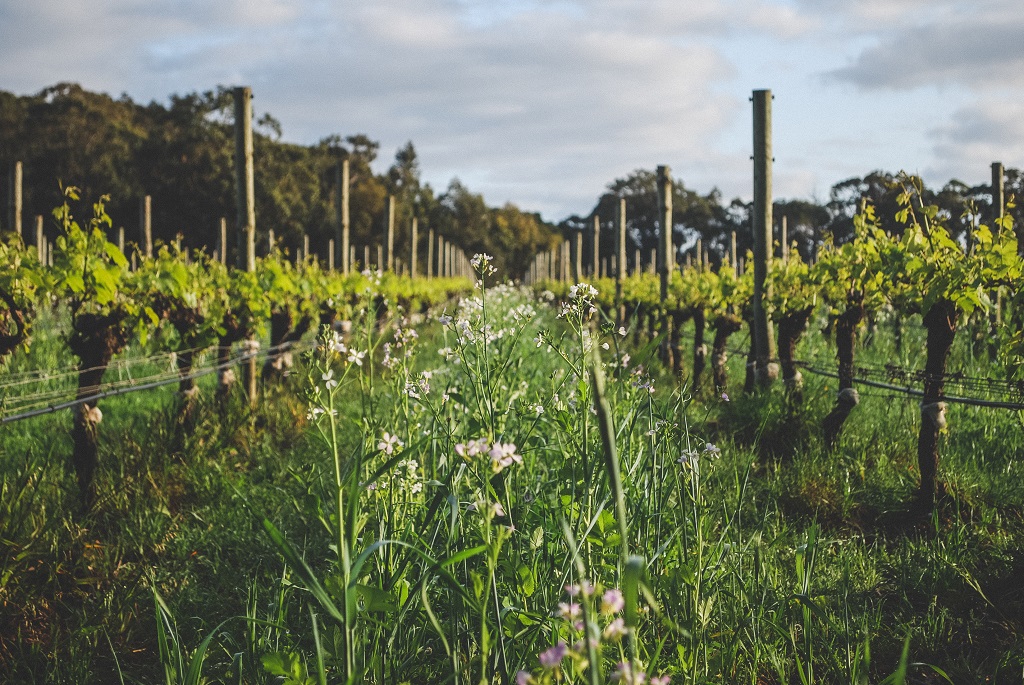
The key focus areas for emission reductions outlined in the report were energy and renewables, packaging and transport, and carbon storage.
ENERGY & RENEWABLES
- Increase solar and/or other renewable energy installations (feasibility underway).
- Research and understand lower emissions fuels and/or electrification for mobile plant in the vineyard and gardens.
PACKAGING & TRANSPORT
- Increased use of recycled, reusable, or environmentally-preferred packaging materials.
- Introduce light-weight bottles to five wines in 2023 and continue to standardise packaging, which helps avoid cardboard waste.
- Research alternative packaging landscape and fully assess impacts of a product’s life cycle.
- Continued analysis of the potential for bulk wine transport and bottling closer to east coast Australia distribution points.
CARBON STORAGE
- Established plantings to add biodiversity and carbon storage, generating third-party verified carbon credits to offset those harder-to-shift emissions.
“Our key focus areas for action over the next three to five years are in scope one and two, and where we can source readily available technology, materials and equipment. These actions will sit alongside ongoing, consistent reductions in waste generation and electricity use as part of day-to-day operations,” the report stated.
To read Voyager Estate’s Inaugural 2023 Sustainability Report in full, head to: www.voyagerestate.com.au/assets/client/File/VGR_2023_SustainabilityReport_A3.pdf
Are you a Daily Wine News subscriber? If not, click here to join our mailing list. It’s free!
